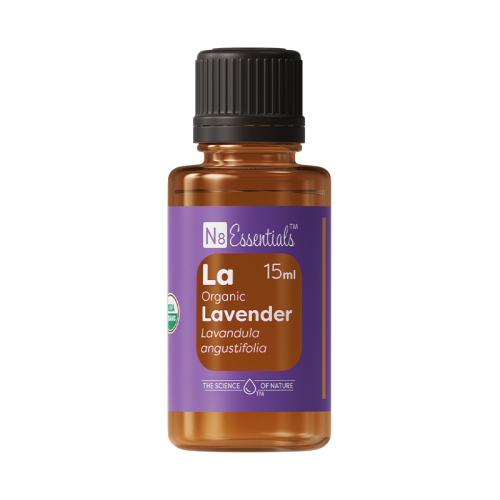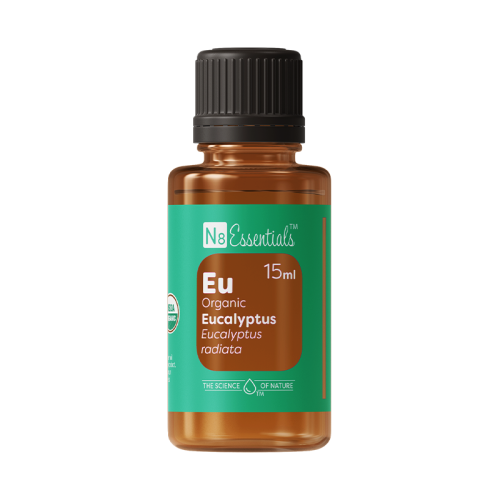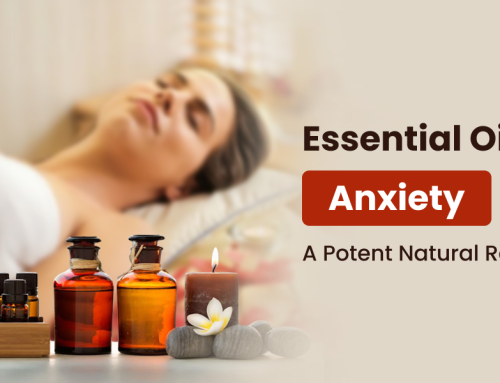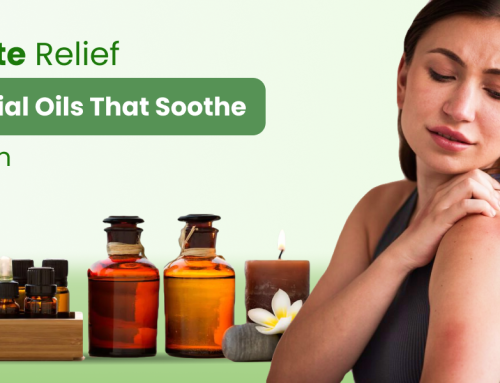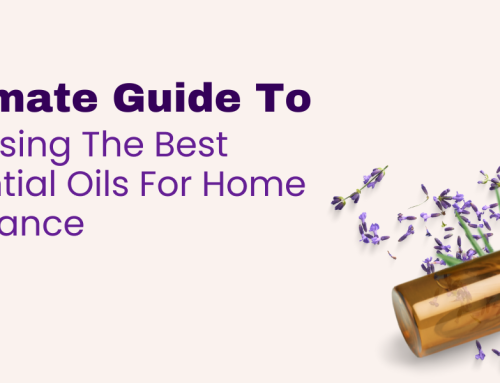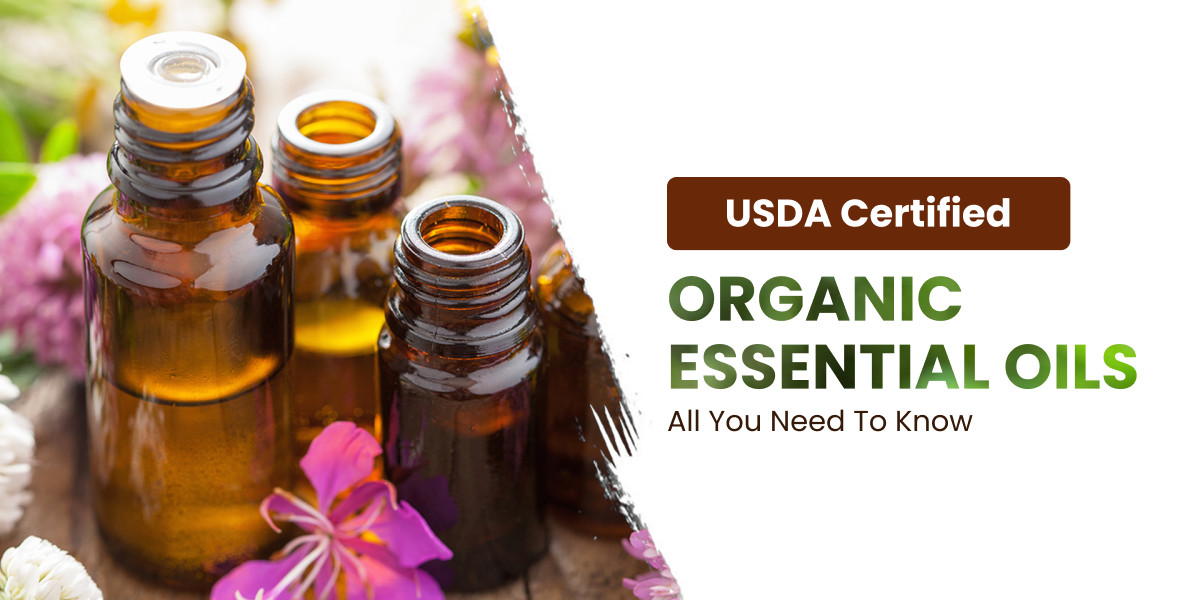
With personal hygiene becoming ever more integral to our lives since the pandemic, essential oils are finding more applications in health and wellness apart from their delightful fragrances. However, there are various types of oils in the market and it can get tricky to choose which option best suits your needs.
For instance, you can find different bottles of the same essential oil (let’s take eucalyptus oil for example) from different brands, with the terms “USDA-certified organic”, “100% organic”, or “made with organic ingredients”. Choosing which oils to go for based on the product label is confusing, to say the least.
The most common questions in this regard are: “Are organic essential oils actually better than non-organic oils?” and “Who certifies essential oils as organic and based on what?”
In this blog post, we answer exactly these questions and cover all your queries regarding organics and certifications when it comes to essential oils.
1. Understanding the Different Grades of Essential Oils
Essential oils are basically concentrated extracts from plant-based sources. They retain the fragrance and natural essence of the source material (leaves, flowers, stems, etc.) – therefore the name ‘essential’.
While you select and buy essential oils online, it is crucial to have an idea of the various grades of essential oils available in the market. They are classified as organic or non-organic based on the processes of cultivation, extraction, and preparation.
1.1 Non-Organic Essential Oils
Commercial or Fragrance Grade Essential Oils
Commercial-grade essential oils are obviously the most affordable option and are used widely in industrial applications in the form of cleaning products and fragrances. They are generally extracted using high-pressure and high-heat methods that can damage the delicate chemical constituents in the oil and take away their therapeutic properties. Commercial-grade oils are also more likely to be mixed with synthetic chemicals to intensify their fragrances.
Therapeutic Grade Essential Oils
It is most common for non-organic essential oils to be labeled and sold as “therapeutic grade”. While many sellers market their oils under this description, the term “therapeutic grade” is not regulated by any official or government authority. The term serves to suggest that the particular oil is superior to other non-organic oils in terms of quality and purity. “Therapeutic grade” is a marketing term meant to give the impression that the oil is of high quality and purity. It is not our aim to say that therapeutic-grade oils are not quality oils; we just encourage you to make sure you research any oil claiming to be therapeutic-grade to make sure you know what you are paying for.
1.2 Organic Essential Oils
Organic essential oils are derived from plants that have been cultivated and harvested without using chemical fertilizers, pesticides, or other harmful inorganic constituents. They are naturally considered to be of higher quality and purity than non-organic oils as they are made using eco-friendly and sustainable methods.
Here arises an important point. As already mentioned, you can find oils from different makers in stores or online that claim to be “USDA Certified Organic” or “made with organic ingredients”. Let’s understand how they differ.
USDA Certified Organic Essential Oils
Whenever you find the words “USDA Certified Organic” on the product labels or descriptions of essential oil, it means that at all levels in the supply chain, the products have met guidelines established by the United States Department of Agriculture.
The USDA certification signifies that the oil meets the standards of organic production. These oils are extracted from plants grown without the use of synthetic chemicals and genetically modified organisms (GMOs). USDA certified organic essential oils adhere to strict guidelines that promote environmentally conscious agricultural practices.
The “USDA Certified Organic” seal verifies that the entire production process, from cultivation to extraction to packaging and cleaning of equipment aligns with the principles of organic farming. These oils are considered the most pure and of the highest quality of all.
Under the USDA’s National Organic Program (NOP), “Certified Organic” essential oils should satisfy the following criteria.
- The bottle/container must show the list of ingredients.
- The oil must be made with raw materials that are at least 95% organically cultivated and treated.
- It must not be prepared using prohibited substances laid down by the USDA. This includes a list of artificial preservatives, chemical fertilizers, pesticides, dyes, petrochemicals, dyes, ionizing radiation, and so on.
- The oil must be free of GMOs.
- The “USDA Certified Organic” should appear on the label or package.
Essential Oils Made With Organic Ingredients
The phrase “Made with organic ingredients” indicates that the oil is made mostly with organic raw materials, however, non-organic elements may have been used to a degree as well. These oils may be of higher quality and purity compared to non-organic and commercial-grade oils but are not as strictly controlled as USDA Certified Organic essential oils.
The National Organic Program lays down the following guidelines for oils made with organic ingredients.
- These oils have to be made with at least 70% organic raw materials.
- The remaining 30% (or less) of the ingredients should not be foods.
- The non-organic ingredients should not include substances that are prohibited by the USDA or FDA.
- The product labels, packages, or descriptions MUST NOT bear the USDA seal anywhere.
2. Why Choose USDA Certified Organic Essential Oils
Since USDA Organic essential oils have to pass through stringent regulations before they get certified every year, you can expect increased levels of purity, potency, and commitment to the environment when you opt to use them. Let’s take a look at the key advantages of using USDA certified essential oils.
2.1 Purity
USDA Organic essential oils are prepared using eco-friendly and sustainable processes that focus on the health of both the plants and their surrounding environment. These oils are devoid of the tiniest hints of synthetic chemicals, pesticides, fertilizers, and GMOs, guaranteeing that they contain no impure elements.
When you consider how highly concentrated certified organic essential oils are, you can understand the importance of purity better. For instance, it takes around 30 pounds of lavender to produce a single 15 ml bottle of USDA certified lavender essential oil. The smallest traces of artificial compounds can be detected while testing, leading to the entire batch being disqualified for certification.
2.2 Greater Quality
Certified organic oils are usually of greater quality in comparison to those “made with organic ingredients” or non-organic ones as they are produced using premium plant-based raw materials and following the best extraction processes. This makes these oils more potent, beneficial, and effective for various health and wellness applications.
2.3 Better For the Environment
To get certified, these oils have to meet strict guidelines and regulations on sustainable and environmentally friendly cultivation, harvesting, and extraction practices. By opting for USDA certified organic essential oils, you actively contribute to the well-being of the natural ecosystem, supporting a cycle that benefits not only humans but also the entire planet as a whole.
2.4 Holistic Wellness
Essential oils are becoming more and more relevant in promoting physical, mental, and emotional well-being besides their uses in perfumes and cosmetics. USDA certified organic essential oils go beyond the immediate benefits, fostering a holistic approach to your general health by minimizing exposure to synthetic chemicals and other additives.
2.5 Traceability and Transparency
One of the standout features of USDA certified organic essential oils is the unmatched traceability they offer, providing consumers with the guarantee of organic quality of each oil, from raw material to bottle. Each step of the production process is documented and audited, ensuring transparency and accountability. This empowers buyers to make informed choices about the products they purchase and use.
[ Read also: The Ultimate Guide To Choosing The Best Essential Oils For Home Fragrance ]
3. How are USDA Organic Essential Oils Certified?
In order to be certified by the USDA as ‘organic’, essential oil producers must go through a rigorous process that involves several steps.
- Application – The producer or seller has to make an application to a USDA-accredited certifying body. The application has to contain a detailed description of the producer’s operations including the methods of cultivating, growing, harvesting, and processing.
- On-Site Inspection – The inspectors from the certifying body will examine the producer’s operations as mentioned before and make sure that they comply with the National Organic Program’s standards.
- Laboratory Testing – Samples of essential oils that are ready for sale are tested thoroughly by the certifying body for harmful compounds and prohibited substances.
- Inspections – After clearing the certification metrics for the first time, the essential oils have to be inspected and re-examined on a regular basis to retain their “USDA Organic” seal.
4. Discover the Best of USDA Certified Organic Oils With N8 Essentials
At N8 Essentials, we take pride in delivering premium USDA certified essential oils that meet the highest standards of purity and quality. Our commitment to eco-friendly and sustainable cultivating practices harmonizes with our constant drive for innovative and modern extraction and delivery processes.
We bring you a diverse range of USDA organic essential oils, each selected carefully for their unique properties. From aromatherapy and cosmetics to personal hygiene and health care, we offer you essential oils and blends that cater to a wide range of needs. Check out our line-up of USDA certified organic oils and enjoy the potent benefits of Mother Nature today.

